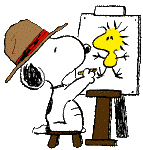Caution: This page is historic since it has not been updated for 10 years...
From a historical perspective it may be interesting to see what a link page looked like 10 years ago.
Most links are broken, however, and I never managed to find the time to fix them.
Tilman's Links for (Experimental) Economists
Don't run around any further. It's all here!
 Note: Links of special interest for experimental economists
are marked [
Note: Links of special interest for experimental economists
are marked [ ]
All links are opened in a NEW browser window.
]
All links are opened in a NEW browser window.
Shortcuts | Resources | Departments
| Organizations | Hompages | Experiments
| Books | Journals | Working
Papers | University Press | Fun
Stuff |

|
Professional Stuff
(Economics and related)
|
Resources
TOP
Economics Departments
-
in the United
States --- IMPRESSIVE ! seems to be quite complete....
-
all over the world
--- not very complete but helpful...
TOP
Organizations
TOP
 Homepages
of some Economists
Homepages
of some Economists
TOP
 World-Wide
Pages on Experimental Economics
World-Wide
Pages on Experimental Economics 


TOP
 Printed
Stuff in (Experimental) Economics
Printed
Stuff in (Experimental) Economics
Books on Experiments 
-
The Handbook of Experimental Economics by John. H. Kagel and Alvin
E. Roth (Eds.), Princeton University Press, 1995. (ISBN 0-691-04290-X).
Paperback edition, Fall 1997. [see Table
of Contents]
This books provides easy to read overviews and references to almost
every branch of experimental economics. It is truly a handbook and a MUST
for everyone interested in experimental economics.
-
Experimental Economics by Douglas D. Davis and Charles A. Holt,
Princeton University Press, 1993.
A good introduction to experimental economics. Includes a very useful
section on experimental design and statistical methods - especially non-parametric
methods (Chap. 9).
-
Experimental Methods - A Primer for Economists by Daniel Friedman
and Shyam Sunder, Cambridge University Press, 1994.
A brief introduction to the methods of experimental economics that
outlines the basics of doing experiments.
-
Experiments with Economic Principles by Theodore C. Bergstrom and
John H. Miller, McGraw-Hill, 1997. [see Table
of Contents]
Explains how to introduce economic principles by doing experiments
in the classroom. The thirteen experiments presented are ready to go and
give students excellent intuition how the principles actually work.
Game Theory and Ethics
-
Game Theory and the Social Contract - Playing Fair (Vol. 1) by Ken
Binmore, MIT Press, 1994. [see pubisher's
comment]
Ken Binmore argues that game theory provides a systematic tool for
investigating ethical matters. His reinterpretation of classical social
contract ideas within a game-theoretic framework generates new insights
into the fundamental questions of social philosophy. He clears the way
for this ambitious endeavor by first focusing on foundational issues --
paying particular attention to the failings of recent attempts to import
game -- theoretic ideas into social and political philosophy. The book
makes game-theoretic ideas more widely accessible to those with only a
limited knowledge of the field. Instructional material is woven into the
narrative, which is illustrated with many simple examples, and the mathematical
content has been reduced to a minimum.
-
Game Theory and the Social Contract - Just Playing (Vol. 2) by Ken
Binmore, MIT Press, 1998. [see pubisher's
comment]
"Ken Binmore's Game Theory and the Social Contract is the most important
work in social philosophy since John Rawls' Theory of Justice. It is highly
original, insightful, and will be a focal point for social theory."
[Brian Skyrms, Distinguished Professor of Philosophy
and Professor of Economics, University of California, Irvine]
Written for an interdisciplinary audience, "Just Playing" offers a panoramic
tour through a range of new and disturbing insights that game theory brings
to anthropology, biology, economics, philosophy, and psychology. It is
essential reading for anyone who thinks it likely that ethics evolved along
with the human species.
Journals
Working Papers
TOP
University Press
TOP
 Fun Stuff Section
Fun Stuff Section

Top Reasons to Study Economics


|
-
You get to talk about money without actually having any.
-
You learn about protection and elastic demand.
-
Mick Jagger, Arnold Schwarzenegger, and Ronald Reagan studied economics
and look where it got them.
-
It is the only discipline where two people can share a Nobel Prize for
saying contradictory things.
-
You learn about all of the interesting uses of an invisible hand.
-
At least you know why you are in the unemployment line.
-
When you get drunk, you can say that you were doing research on the law
of diminishing marginal utility.
-
Economist do it with models....
For more of that, go to the Economist
Jokes.
|


Links
-
The
Internet Sailing Magazine for all who like this sport like I do...
-
Yacht, the
German Sailing Magazine now online (in German only, but nice pictures to
download)
-
SWR 3, best
radio station around here...
-
If you are interested in visual illusions,
one of the best sites on the Web is maintained by Illusionworks

TOP


Created by Tilman Slembeck, September 1995 - Last
update: 22 May, 2000


 Homepages
of some Economists
Homepages
of some Economists
 World-Wide
Pages on Experimental Economics
World-Wide
Pages on Experimental Economics 




![]()

